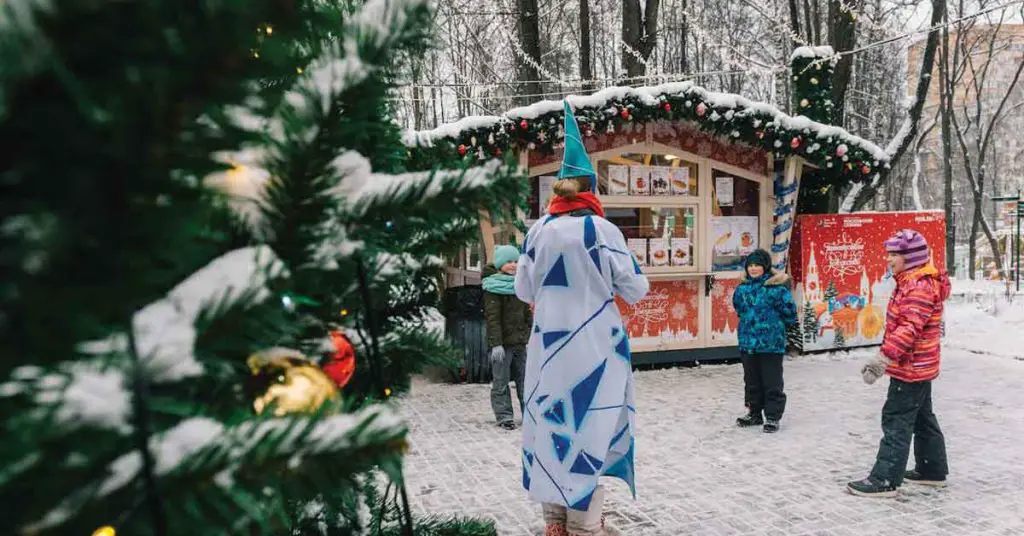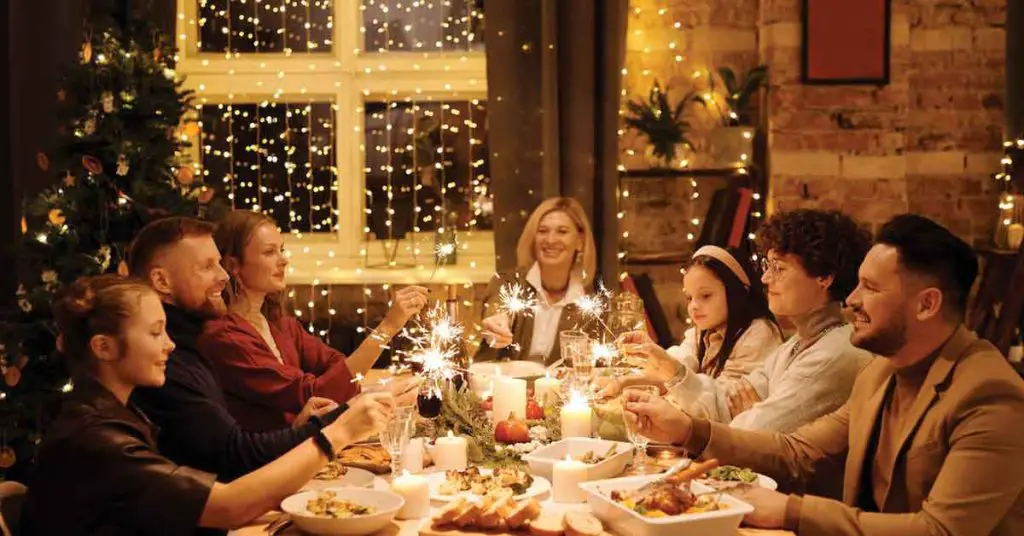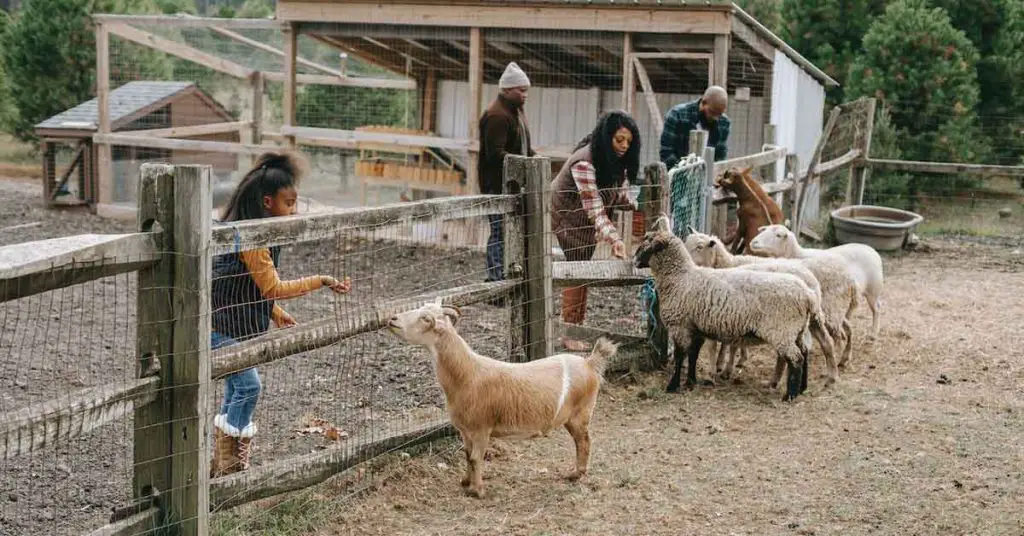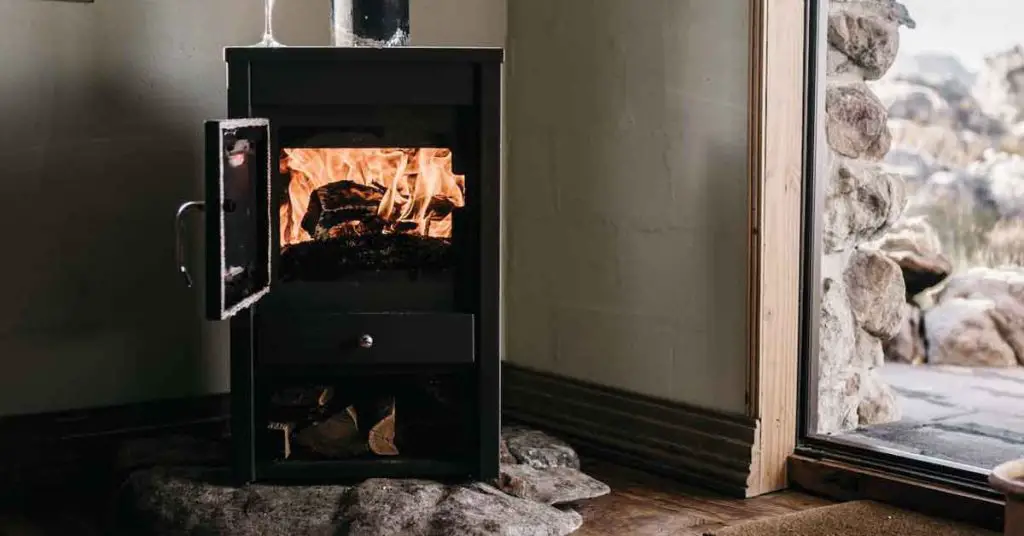Introduction to Homesteading Community Events: Building Connections in Winter
As the crisp air of winter begins to swirl around our homesteads, it brings with it a unique set of challenges and opportunities. For those of us who embrace the homesteading lifestyle, this season is not just about cozy fires and preparing for the cold; it’s also a time to strengthen the bonds within our community. Welcome to our guide on ‘Homesteading Community Events: Building Connections in Winter.’
Homesteading, at its core, is about self-sufficiency and living in harmony with the land. But it’s also deeply rooted in community – sharing knowledge, resources, and support. Winter, often perceived as a time of isolation, presents a golden opportunity for homesteaders to come together, learn from each other, and build lasting connections.
This article will explore the vibrant world of Homesteading community events. From indoor workshops that keep the gardening spirit alive to online gatherings that connect homesteaders across miles of snow-covered landscapes, these events are a lifeline during the colder months. They’re not just about passing the time but about enriching our skills, expanding our networks, and nurturing a sense of belonging in the homesteading community.
So, whether you’re a seasoned homesteader or starting, join us as we delve into the heartwarming world of community events tailored for the winter season. Let’s discover how these gatherings can light up our homesteading journey, even on the shortest days of the year.
The Importance of Community in Homesteading
Homesteading, often pictured as a solitary journey of self-reliance, is deeply intertwined with community. This section will explore how society plays a pivotal role in enriching the homesteading experience, especially during winter.
Community: The Heart of Homesteading
- Shared Knowledge and Resources: Homesteading is a continuous learning process. Being part of a community allows for exchanging invaluable knowledge and resources. Whether it’s learning age-old canning techniques or modern sustainable practices, the collective wisdom of a community is a treasure trove for any homesteader.
- Support System: Every homesteader knows the challenges that come with this lifestyle. A community acts as a support system, offering help during tough times, be it a failed crop or a broken fence. There’s reassurance in knowing you’re not alone in your journey.
Winter: A Time for Strengthening Bonds
- Overcoming Isolation: Winter can bring isolation but offers a unique opportunity to strengthen community bonds. Indoor events and gatherings become a hub for social interaction, keeping the community spirit alive even in the coldest months.
- Skill-Sharing Workshops: Winter is the perfect time for educational workshops. Community gatherings focused on skill-sharing, like knitting, woodworking, or winter gardening, teach valuable skills and foster a sense of togetherness.
Integrating Community into Homesteading
- Community Gardening Events: Participating in or organizing community gardening events, even in winter, can be a great way to stay connected. These events range from planning sessions for the next season to indoor gardening workshops.
- Homesteaders Networking: Utilize the quieter winter months to network with fellow homesteaders. This can be through social media groups, local community meetings, or virtual webinars. Networking is vital to building a resilient and supportive homesteading community.
The essence of homesteading transcends the boundaries of individual efforts, weaving into the fabric of a community. With its unique challenges, winter provides a backdrop against which the strength and warmth of community ties can truly shine. By engaging in community gardening events and networking, homesteaders can survive and thrive during winter, setting a solid foundation for the seasons to come.
Types of Winter Homesteading Events

With its chilly embrace, winter brings unique opportunities for homesteaders to connect and learn through various events. Let’s delve into the types of winter homesteading events that keep the community spirit alive and enhance our skills and knowledge.
Diverse Events for the Cold Months
- Indoor Workshops: When the cold sets in, move the learning indoors. Workshops range from canning and preserving harvests to crafting homemade soaps and candles. These gatherings are perfect for learning new skills while staying warm and social.
- Online Webinars and Courses: The digital world offers endless learning opportunities. Online webinars and courses on sustainable living, permaculture design, or animal husbandry can be incredibly enriching. They allow homesteaders from different regions to connect and share experiences.
Engaging and Educational Event Examples
- Local Meet-ups and Discussion Groups: Organize or attend local meet-ups. These can be informal gatherings at a community center or a fellow homesteader’s living room, where discussions on various homesteading topics take place. It’s a great way to meet neighbors and exchange tips.
- Sustainable Living Seminars: Seminars focusing on sustainable living practices are invaluable during winter. Topics might include energy efficiency in homesteading, winter composting techniques, or eco-friendly home improvements.
Winter Adaptation and Sustainability Seminars
- Winter Homesteading Workshops: These workshops are not just about learning but about sharing experiences and challenges specific to winter homesteading. They could cover topics like winter crop rotation, greenhouse management, or creating a winter-friendly homestead layout.
- Sustainable Living Seminars: These seminars are crucial for homesteaders looking to reduce their environmental footprint. They offer insights into renewable energy sources, water conservation methods in winter, and sustainable animal care practices.
In summary, winter doesn’t have to be a dormant period for homesteaders. Instead, it can be a season filled with engaging and educational events. From cozy indoor workshops to enlightening online webinars and local meet-ups, there’s a plethora of activities to keep the homesteading community vibrant and connected. By participating in winter homesteading workshops and sustainable living seminars, homesteaders can continue to grow, learn, and strengthen their community bonds, even in the coldest months.
Benefits of Participating in Community Events
When the homestead feels isolated in winter, participating in community events can be a game changer. These gatherings are more than just social meet-ups; they’re a hub of learning, sharing, and emotional support. Let’s explore the multifaceted benefits of engaging in these events through the lens of seasoned homesteaders.
Educational Benefits: A Learning Hub
- Homesteading Skills Classes: These classes offer practical, hands-on learning experiences. Whether about winter gardening techniques or animal care in colder months, these classes provide invaluable knowledge directly applicable to your homestead.
- Sharing of Best Practices: Community events often turn into knowledge exchange platforms. Experienced homesteaders share their tried-and-tested methods, offering insights you might not find in books or online.
Social and Emotional Advantages: Building a Supportive Network
- Creating Lasting Friendships: These events are where lifelong friendships are forged. Bonding over shared interests and experiences in homesteading makes a strong sense of community.
- Emotional Support: Homesteading can be challenging, especially in winter. Community events offer a space to share concerns, seek advice, and find encouragement from those who understand the lifestyle.
Real Stories from the Homesteading Community
- Testimonials of Transformation: Many homesteaders attribute their success to tips and techniques learned at these events. Stories abound of novices who turned their struggling homesteads around with advice gleaned from a workshop or a casual conversation at a meet-up.
- Finding Inspiration: Hearing about others’ homesteading journeys can be incredibly inspiring. It’s not just about the successes; it’s also about overcoming challenges, which can be very motivating.
Enhancing Skills and Sustainability
- Homesteading Skills Classes: These classes are often the stepping stones to mastering essential skills. From beginner to advanced levels, they cater to all, making them a must-attend for anyone serious about homesteading.
- Eco-Friendly Homesteading Gatherings: These gatherings focus on sustainable practices, teaching homesteaders how to minimize their environmental impact while maximizing productivity.
Participating in homesteading community events during winter offers many benefits. These events are invaluable, from educational opportunities that enhance your skills to the social and emotional support from being part of a like-minded community. They’re not just gatherings; they’re a source of inspiration, learning, and camaraderie. As we’ve seen from the stories of fellow homesteaders, the value found in these events can be transformative, both for your homestead and your personal growth. So, embrace these opportunities – attend a class, join a gathering, and see how these experiences enrich your homesteading journey.
Finding and Joining Homesteading Events
As winter draws near, the homesteading community comes alive with various events and gatherings. But how do you find these events, and what’s the best way to get involved? Whether you’re a seasoned homesteader or just starting, this section will guide you through finding and joining homesteading events making the most of the winter season.
Discovering Local and Online Events
- Utilize Social Media and Online Forums: Platforms like Facebook, Instagram, and homesteading forums are excellent resources. Look for groups or pages dedicated to homesteading, agriculture, or sustainable living in your area.
- Check Out Local Community Boards: Often, local libraries, community centers, and farm supply stores have bulletin boards with flyers and information about upcoming events.
- Attend Farmers’ Markets: These are not just places to buy fresh produce; they’re networking hubs. Chat with vendors; they’re often involved in or aware of local events.
Engaging in Community Gatherings
- Join Existing Groups: Whether it’s a gardening club or a sustainable living group, joining an existing group can provide a wealth of information and opportunities to participate in events.
- Volunteer for Events: Offering a helping hand gets you involved and helps build stronger connections within the community.
Organizing Your Events
- Start Small: If you can’t find events that suit your interests, consider starting your own. It can be as simple as a coffee meet-up to discuss homesteading topics or a seed exchange event.
- Use Online Platforms to Organize: Websites like Meetup.com or Facebook groups can be great tools to organize and promote your event.
Networking and Community Engagement
- Local Farming Meet-ups: These are a treasure trove of information and a great way to meet fellow homesteaders. They can range from casual get-togethers to more structured workshops.
- Rural Community Building: This involves creating and nurturing relationships within the rural community, vital for a successful homesteading lifestyle.
Finding and joining homesteading events can significantly enrich your homesteading experience, especially during winter. These events offer numerous benefits, from learning new skills to forming lasting friendships. Don’t hesitate to explore online resources, engage in local community gatherings, and even consider organizing your events. Remember, every big community started with a small group. So, take the initiative, join in, and watch your homesteading network flourish!
Hosting Your Homesteading Event

In the heart of winter, the homesteading community often seeks warmth not just from their hearths but also through the camaraderie and connection of community events. Hosting your event can be a fulfilling way to unite like-minded individuals and share valuable knowledge. Here’s how to create a successful homesteading event that resonates with the season’s spirit.
Crafting the Perfect Gathering
Imagine you’re about to create an event that brings together like-minded homesteaders, all eager to learn and share. Here, we’ll dive into how to pick a theme that resonates, find a spot that feels just right, and choose a time that works for everyone. It’s all about setting the stage for an unforgettable gathering.
Choosing Your Theme
- Identify What’s Needed: Reflect on what skills or knowledge would benefit your community this season. It could be anything from winter animal care to indoor herb gardening.
- Engage with Your Audience: Before finalizing the theme, consider getting input from potential attendees. This ensures the event is tailored to their interests and needs.
Planning the Logistics
- Venue Selection: Depending on the size and nature of your event, choose a venue that’s accessible and comfortable. This could be a community hall, a local farm, or an online platform.
- Date and Time: Pick a date that avoids significant holidays and a time that’s convenient for most people. Remember, winter days are shorter, and travel might be slower due to weather conditions.
Promoting Inclusivity and Learning
- All Skill Levels Welcome: Make sure your event caters to a range of experiences, from beginners to seasoned homesteaders.
- Interactive and Engaging: Plan activities that encourage participation and hands-on learning. Workshops, demonstrations, and group discussions are great ways to engage attendees.
Spreading the Word
Now that your event is taking shape let’s talk about getting the word out. It’s not just about announcements; it’s about creating a buzz and making people feel excited and involved. We’ll explore using social media to your advantage, tapping into local networks, and keeping potential attendees engaged and informed.
Effective Promotion
- Leverage Social Media: Use platforms like Facebook, Instagram, and local online forums to reach a wider audience.
- Community Networks: Don’t underestimate the power of word-of-mouth. Share information at local stores, community centers, and farmers’ markets.
Building Anticipation
- Regular Updates: Keep potential attendees interested with regular updates about the event, including sneak peeks of planned activities.
- Engage with Questions: Encourage potential attendees to ask questions or suggest ideas for the event. This builds interest and helps you tailor the event to their needs.
On the Day of the Event
The big day is here! It’s time to bring your vision to life. We’ll look at how to make everyone feel welcome, encourage lively participation, and keep things running smoothly. And it doesn’t end there – we’ll also touch on how to keep the momentum going, ensuring this event is just the beginning of something bigger.
Fostering a Community Spirit
- Warm Welcome: Greet attendees warmly and create a welcoming and inclusive environment.
- Encourage Participation: Make sure everyone feels comfortable contributing, asking questions, and sharing their experiences.
Post-Event Engagement
- Follow-Up: After the event, reach out to attendees with a thank you message, additional resources, or a survey for feedback.
- Plan for the Future: Use the momentum to plan future events or create ongoing discussion groups.
Hosting your homesteading event is not just about sharing knowledge; it’s about building a community that supports and learns from each other. By focusing on themes relevant to winter homesteading, ensuring inclusivity, and effectively managing logistics, you can create an event that enriches your local homesteading community. Events like these are the seeds from which stronger, more connected homesteading communities grow.
Staying Connected Beyond Events
Homesteading isn’t just about the land; it’s about the people we share our journey with. In this section, we’ll explore how to nurture the connections made during homesteading community events, ensuring they grow and thrive long after the events have ended. It’s about creating a network that supports, inspires, and learns from each other throughout the seasons.
Cultivating Lasting Relationships
- Follow-Up After Events: A simple message or email thanking attendees can go a long way. Consider creating a group email or chat for participants to stay in touch, share insights, or plan future gatherings.
- Regular Check-Ins: Establish a routine of checking in with your new connections. It could be a monthly coffee meet-up, a seasonal potluck, or an online catch-up session.
Fostering Collaboration and Support
- Project Collaboration: Encourage collaboration on projects or challenges. This could be anything from a group garden project to a collective effort to learning a new homesteading skill.
- Resource Sharing: Create a platform for sharing resources, tools, seeds, or knowledge. This strengthens bonds and enhances the sustainability of your homesteading practices.
Leveraging Online Platforms for Continuous Engagement
- Active Participation in Online Forums: Join and contribute to online forums and social media groups focused on homesteading topics. These platforms are great for sharing experiences, asking questions, and staying updated on each other’s progress.
- Creating or Joining Social Media Groups: Social media groups can be a powerful tool for keeping the community engaged. Share updates, ask for advice, or organize virtual events during the colder months.
By maintaining these connections and fostering collaboration, the bonds formed during homesteading events can evolve into a supportive network that enriches your homesteading experience year-round. Remember, a thriving community is about the events we attend and the relationships we build and sustain. So, keep the conversation going, share your successes and challenges, and watch as your homesteading community becomes integral to your journey.
Conclusion: Homesteading Community Events
As we wrap up our journey through ‘Homesteading Community Events: Building Connections in Winter,’ let’s take a moment to reflect on the warmth and richness these gatherings bring to our lives, especially in the colder months. From the cozy indoor workshops to the lively online webinars, each event weaves a thread of connection and learning into the fabric of our homesteading life.
Homesteading community events are more than just social gatherings; they are the heartbeat of a thriving homesteading culture. They offer a platform for sharing knowledge, fostering friendships, and building a support system beyond our efforts. With its reflective and quieter pace, winter provides the perfect backdrop for strengthening these bonds and preparing for the seasons ahead.
We’ve explored the various types that enrich our winter months, from sustainable living seminars to local farming meet-ups. Each event is a unique opportunity to learn, share, and grow. By participating in these events, we enhance our skills and knowledge and contribute to the collective wisdom of the homesteading community.
But the journey doesn’t end with events. The connections made during these gatherings have the potential to blossom into lasting relationships. By staying engaged through online forums, social media groups, and regular meet-ups, we ensure that the spirit of community thrives all year round.
So, as the winter winds blow and the hearth fires burn, let’s embrace the opportunities homesteading community events offer. Whether you’re a seasoned homesteader or just starting out, this vibrant community has a place for you. Share your experiences, learn from others, and even host your event. Let’s continue to build a homesteading community that’s as resilient and enduring as the land we love.
We invite you to share your thoughts, experiences, or upcoming events in the comments below. Let’s keep the conversation going and the community growing!
Disclaimer: The information provided in this article is for general informational purposes only and is not intended to be a substitute for professional advice. The author of this article does not claim to be an expert in homesteading and the information provided should not be relied upon to make decisions about your own homesteading journey. Please do your own research and consult with a qualified professional before making any decisions about your homestead.
Share via:
Shaun Alexander is the main writer and editor for HomesteadingSimple.com. With a strong passion for homesteading and sustainability, Shaun has dedicated his life to learning and sharing information about a simple, fulfilling existence tied to the land. His expertise ranges from gardening and livestock management to off-grid living and DIY projects, reflecting the diverse skills necessary for a successful homesteading lifestyle. Shaun’s goal is to inspire and educate others about the possibilities of homesteading, whether in rural, suburban, or urban settings, and to provide practical advice and tips for both beginners and seasoned homesteaders. He believes in a future where more people return to their roots, embracing a life of self-sufficiency and harmony with nature.





